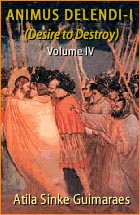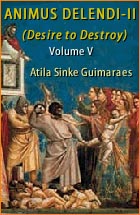Consequences of Vatican II
 |
 |
 |
 |
 |
 |
 |
The Medicine of Mercy – III
Unlimited Tolerance for Those Who
Break Church Law
In the last article, we looked at how, since Vatican II, the new teachings promoted by the conciliar Popes have led to alternations in the Faith, disastrous for the faithful.
The same practices continued under Pope Francis. In his pontificate there has been a virtual flood of actions and teachings that clearly contradict the traditional Catholic Faith and are against Christ's purpose for His Church, since they endanger the eternal welfare of souls.
For example, Pope Francis, in his emphasis on making the Church more “loving, caring, inclusive and sympathetic” to sinners, called two Synods of Bishops in October 2014 and October 2015 to cobble up a rationale, or spin, to permit the reception of the Sacred Hosts to divorced and remarried individuals as well as to those living in active homosexual relationships.
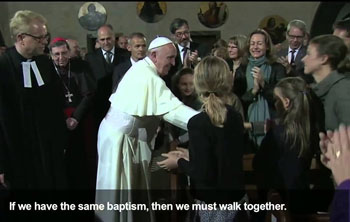 Now, the pre-conciliar Catholic Faith has always firmly held that divorce and remarriage is a serious sin and that sodomy was one of the four sins crying out to heaven for vengeance. (1) Consequently, such individuals live in mortal sin and may not receive the Sacred Hosts.
Now, the pre-conciliar Catholic Faith has always firmly held that divorce and remarriage is a serious sin and that sodomy was one of the four sins crying out to heaven for vengeance. (1) Consequently, such individuals live in mortal sin and may not receive the Sacred Hosts.
Further, on the conditions to receive Communion, the Council of Trent clearly affirms: “If anyone says that faith alone is sufficient preparation for receiving the sacrament of the most Holy Eucharist: let him be anathema. And that so great a Sacrament may not be unworthily received and, therefore, [lead] unto death and condemnation, this holy Council ordains and declares that sacramental confession must necessarily be made beforehand by those whose conscience is burdened by mortal sin, however contrite they may consider themselves. If anyone moreover teaches the contrary or preaches or obstinately asserts, or even publicly by disputation shall presume to defend the contrary, by that fact itself he is excommunicated.” (2)
Thus, any attempt to develop such a “rationale” obviously contradicts the very purpose for which Jesus established the Catholic Church. Furthermore, because permission to receive the Sacred Hosts to these groups would permit and/or encourage them to continue to live in such a lifestyle that very likely will lead to their condemnation before the Divine Tribunal, such permission would be anything but “loving, caring and sympathetic.”
While the document that issued from the Synod 2015 did not give formal approval for general access to Communion for persons who are civilly divorced and remarried or cohabitating or the warm welcome for homosexual “marriage” that Francis and some of his supporters were hoping for, a door was left opened for such actions.
As Atila Guimarães points out in an article analyzing the final document of the Extraordinary Synod, Francis has already assured a partial success of his plan by issuing new rules to make the annulment process faster, easier and cheaper.
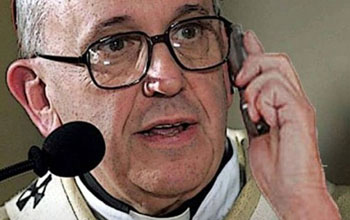
 Francis’ actions are also setting “precedents” that transmit the notion to the clergy and the faithful that granting permission to receive Communion to the divorced and remarried can be allowed, based on pastoral decisions. According to press accounts, In April 2014, Pope Francis phoned a divorced and remarried woman in Argentina, Jacquelina Sabetta, and told her to follow her conscience regarding the reception of Communion since the subject was being discussed at the Vatican.
Francis’ actions are also setting “precedents” that transmit the notion to the clergy and the faithful that granting permission to receive Communion to the divorced and remarried can be allowed, based on pastoral decisions. According to press accounts, In April 2014, Pope Francis phoned a divorced and remarried woman in Argentina, Jacquelina Sabetta, and told her to follow her conscience regarding the reception of Communion since the subject was being discussed at the Vatican.
Although the Vatican did not confirm the content of the conversation, stating it was “a private phone call made by the Holy Father,” the incident fueled the fire of a relaxation of the rules that Francis is de facto imposing.
Another incident seems to reflect this same tendency toward a general relaxation of rules regarding the reception of the Sacred Host. In November 2015, some Lutherans met with the Pontiff. At the ecumenical meeting, Francis suggested that Lutherans married to Catholics can personally discern whether to take Communion in the Catholic Church, saying it is not his role to give permission to such persons but to encourage them to listen to what God is telling them about their situations.
Therefore, even if Francis does not officially change the rules in the Apostolic Exhortation he is expected to release on March 19, the general tone surrounding the question is one of relaxation, “mercy and love.”
Mercy for sinners, punishment for the faithful
The end of this road of relaxation toward sin is well illustrated by a recent incident in the parish of the small town of Stans in Austria.
Fr. Thomas Ladner, an assistant priest who is beloved in the parish, was severely criticized by the Bishop's Office of Education for giving catechism lessons to children on the Four Last Things. He was told that such topics were “not suitable for children at that stage in their lives.” The priest was also accused of using “rhetorical language,” meaning too traditional, and of “not providing age-appropriate pedagogically-integral catechesis.”
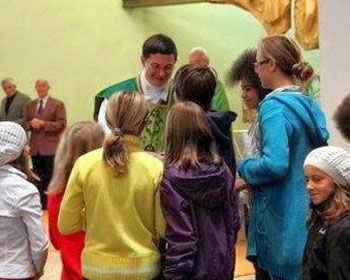 For this “unsuitable” behavior Fr. Ladner was suspended by Msgr. Basil Loftus from teaching religion to children.
For this “unsuitable” behavior Fr. Ladner was suspended by Msgr. Basil Loftus from teaching religion to children.
The children's parents complained that the removal of Fr. Ladner was an “unacceptable decision.” However, the diocesan office and the governing Bishop have shown no signs of changing their position despite the fact the parents also declared they were thoroughly satisfied with “Fr. Ladner’s teaching and the children even said the topics were their favorites.”
The local paper, The Tyrol Daily, reported: “The 36-year-old catechist and assistant pastor got the children excited about the Faith again, always treating them humanely,” and “the number of acolytes increased under Fr. Ladner.”
Thus, for teaching the perennial faith to children, the priest was punished with neither mercy nor a favorable action from the Vatican. At the same time, the Vatican is quick to step up with a plea for mercy for those who transgress the laws of Morals.
Increasing tolerance toward error
Another example of just how far the Conciliar Church is willing to go to impose its new and relaxed attitude toward sin can be seen in the statement by Card. Walter Kasper, the Pope's chief adviser concerning theological matters. In his fervor for the Conciliar Church to be more “inclusive, caring and accommodating” of religious sects, the Cardinal has gone so far as to suggest that Christ's teachings are not inerrant.
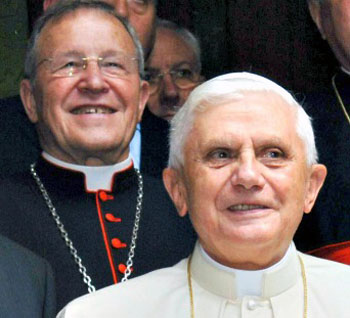 In his work Jesus the Christ, Kasper wrote the following regarding some of the Gospel miracle accounts:
In his work Jesus the Christ, Kasper wrote the following regarding some of the Gospel miracle accounts:
“A number of miracle stories turn out in the light of formal criticism to be projections of the experiences of Easter back into the earthly life of Jesus, or anticipatory representations of the exalted Christ. Among these epiphany stories we should probably include the stilling of the storm, the transfiguration, Jesus’ walking on the lake, the feeding of the four (or five) thousand and the miraculous draught of fishes.
"The clear purpose of the stories of the raising from the dead of Jairus’s daughter, the widow’s son at Naim and Lazarus is to present Jesus as Lord over life and death. It is the nature miracles, which turn out to be secondary accretions to the original tradition.
“The result of all this is that we must describe many of the Gospel miracle stories as legendary. Legends of this sort should be examined less for their historical than for their theological content. They say something, not about individual facts of saving history, but about the single saving event, which is Jesus Christ. To show that certain miracles cannot be ascribed to the earthly Jesus does not mean that they have no theological or kerygmatic significance. …The probability is that we need not take the so-called ‘nature miracles’ as historical.” (Jesus the Christ, p. 90-91)
In this denial of the veracity of Scriptures, we can note that Kasper is only following the example of the supposedly conservative Benedict XVI.
As Guimarães points out in his review of Pope Ratzinger's Jesus of Nazareth (vol. 1), the Pope Emeritus clearly denies the existence of Heaven. In volume 2, Mark Stabinski shows Benedict contradicts Church teaching on the Jews, affirming that the Jewish people were wrongly judged responsible for Christ's death and that Jews do not need to be converted.
We find more egregious reports of the bad consequences of the Church’s new tolerance for error daily in the Catholic press. Here are just two other examples:
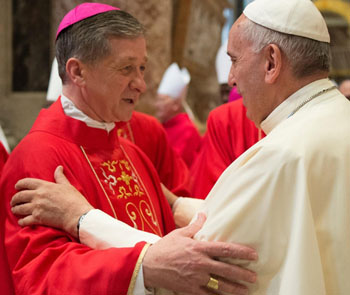 * The refusal of the Card. Luís Martínez, Archbishop of Barcelona, to act against a priest who has funded abortions, performed blessings of homosexual unions and endorsed the creation of female priests. This priest is even the subject of new book, Fr. Manuel, Closer to Earth than to Heaven, that celebrates his popularity with Spanish celebrities for his tolerance and charitable works.
* The refusal of the Card. Luís Martínez, Archbishop of Barcelona, to act against a priest who has funded abortions, performed blessings of homosexual unions and endorsed the creation of female priests. This priest is even the subject of new book, Fr. Manuel, Closer to Earth than to Heaven, that celebrates his popularity with Spanish celebrities for his tolerance and charitable works.
* The approval of Archbishop Blaise Cupich, appointed by Pope Francis to head the prestigious Archdiocese of Chicago, is an indirect endorsement of his position of giving communion to those who favor abortion. The same Archbishop has also indicated support for reception of Communion for homosexual couples and divorced and remarried persons. In such cases, Cupich said, “conscience is inviolable and we have to respect that when making decisions.”
In effect, Cupich appeared to be placing the importance of conscience above Church teaching. In neither case has this favorite of Francis been reproved or corrected by the Vatican.
Continued

The same practices continued under Pope Francis. In his pontificate there has been a virtual flood of actions and teachings that clearly contradict the traditional Catholic Faith and are against Christ's purpose for His Church, since they endanger the eternal welfare of souls.
For example, Pope Francis, in his emphasis on making the Church more “loving, caring, inclusive and sympathetic” to sinners, called two Synods of Bishops in October 2014 and October 2015 to cobble up a rationale, or spin, to permit the reception of the Sacred Hosts to divorced and remarried individuals as well as to those living in active homosexual relationships.

Finnish Lutherans received Communion at St. Peter's Basilica with Francis' implicit authorization
Further, on the conditions to receive Communion, the Council of Trent clearly affirms: “If anyone says that faith alone is sufficient preparation for receiving the sacrament of the most Holy Eucharist: let him be anathema. And that so great a Sacrament may not be unworthily received and, therefore, [lead] unto death and condemnation, this holy Council ordains and declares that sacramental confession must necessarily be made beforehand by those whose conscience is burdened by mortal sin, however contrite they may consider themselves. If anyone moreover teaches the contrary or preaches or obstinately asserts, or even publicly by disputation shall presume to defend the contrary, by that fact itself he is excommunicated.” (2)
Thus, any attempt to develop such a “rationale” obviously contradicts the very purpose for which Jesus established the Catholic Church. Furthermore, because permission to receive the Sacred Hosts to these groups would permit and/or encourage them to continue to live in such a lifestyle that very likely will lead to their condemnation before the Divine Tribunal, such permission would be anything but “loving, caring and sympathetic.”
While the document that issued from the Synod 2015 did not give formal approval for general access to Communion for persons who are civilly divorced and remarried or cohabitating or the warm welcome for homosexual “marriage” that Francis and some of his supporters were hoping for, a door was left opened for such actions.
As Atila Guimarães points out in an article analyzing the final document of the Extraordinary Synod, Francis has already assured a partial success of his plan by issuing new rules to make the annulment process faster, easier and cheaper.

Francis calls divorced & remarried Jaqueline Sabetta, below, and allows her to receive Communion

Although the Vatican did not confirm the content of the conversation, stating it was “a private phone call made by the Holy Father,” the incident fueled the fire of a relaxation of the rules that Francis is de facto imposing.
Another incident seems to reflect this same tendency toward a general relaxation of rules regarding the reception of the Sacred Host. In November 2015, some Lutherans met with the Pontiff. At the ecumenical meeting, Francis suggested that Lutherans married to Catholics can personally discern whether to take Communion in the Catholic Church, saying it is not his role to give permission to such persons but to encourage them to listen to what God is telling them about their situations.
Therefore, even if Francis does not officially change the rules in the Apostolic Exhortation he is expected to release on March 19, the general tone surrounding the question is one of relaxation, “mercy and love.”
Mercy for sinners, punishment for the faithful
The end of this road of relaxation toward sin is well illustrated by a recent incident in the parish of the small town of Stans in Austria.
Fr. Thomas Ladner, an assistant priest who is beloved in the parish, was severely criticized by the Bishop's Office of Education for giving catechism lessons to children on the Four Last Things. He was told that such topics were “not suitable for children at that stage in their lives.” The priest was also accused of using “rhetorical language,” meaning too traditional, and of “not providing age-appropriate pedagogically-integral catechesis.”

Fr. Ladner was forbidden to teach children about Hell & Purgatory, although the parents & children liked it
The children's parents complained that the removal of Fr. Ladner was an “unacceptable decision.” However, the diocesan office and the governing Bishop have shown no signs of changing their position despite the fact the parents also declared they were thoroughly satisfied with “Fr. Ladner’s teaching and the children even said the topics were their favorites.”
The local paper, The Tyrol Daily, reported: “The 36-year-old catechist and assistant pastor got the children excited about the Faith again, always treating them humanely,” and “the number of acolytes increased under Fr. Ladner.”
Thus, for teaching the perennial faith to children, the priest was punished with neither mercy nor a favorable action from the Vatican. At the same time, the Vatican is quick to step up with a plea for mercy for those who transgress the laws of Morals.
Increasing tolerance toward error
Another example of just how far the Conciliar Church is willing to go to impose its new and relaxed attitude toward sin can be seen in the statement by Card. Walter Kasper, the Pope's chief adviser concerning theological matters. In his fervor for the Conciliar Church to be more “inclusive, caring and accommodating” of religious sects, the Cardinal has gone so far as to suggest that Christ's teachings are not inerrant.

Kasper & Ratzinger: both follow Historicism, which denies the truth of the Gospels
“A number of miracle stories turn out in the light of formal criticism to be projections of the experiences of Easter back into the earthly life of Jesus, or anticipatory representations of the exalted Christ. Among these epiphany stories we should probably include the stilling of the storm, the transfiguration, Jesus’ walking on the lake, the feeding of the four (or five) thousand and the miraculous draught of fishes.
"The clear purpose of the stories of the raising from the dead of Jairus’s daughter, the widow’s son at Naim and Lazarus is to present Jesus as Lord over life and death. It is the nature miracles, which turn out to be secondary accretions to the original tradition.
“The result of all this is that we must describe many of the Gospel miracle stories as legendary. Legends of this sort should be examined less for their historical than for their theological content. They say something, not about individual facts of saving history, but about the single saving event, which is Jesus Christ. To show that certain miracles cannot be ascribed to the earthly Jesus does not mean that they have no theological or kerygmatic significance. …The probability is that we need not take the so-called ‘nature miracles’ as historical.” (Jesus the Christ, p. 90-91)
In this denial of the veracity of Scriptures, we can note that Kasper is only following the example of the supposedly conservative Benedict XVI.
As Guimarães points out in his review of Pope Ratzinger's Jesus of Nazareth (vol. 1), the Pope Emeritus clearly denies the existence of Heaven. In volume 2, Mark Stabinski shows Benedict contradicts Church teaching on the Jews, affirming that the Jewish people were wrongly judged responsible for Christ's death and that Jews do not need to be converted.
We find more egregious reports of the bad consequences of the Church’s new tolerance for error daily in the Catholic press. Here are just two other examples:

Cupich follows Francis' direction on opening Communion to the divorced/remarried & homosexual 'couples'
* The approval of Archbishop Blaise Cupich, appointed by Pope Francis to head the prestigious Archdiocese of Chicago, is an indirect endorsement of his position of giving communion to those who favor abortion. The same Archbishop has also indicated support for reception of Communion for homosexual couples and divorced and remarried persons. In such cases, Cupich said, “conscience is inviolable and we have to respect that when making decisions.”
In effect, Cupich appeared to be placing the importance of conscience above Church teaching. In neither case has this favorite of Francis been reproved or corrected by the Vatican.
Continued
- Ludwig Ott, The Fundamentals of Catholic Dogma, TAN, 1960, Chaps. XII, XIII
- Denzinger, Item 893, Can. 11.

Posted March 9, 2016






